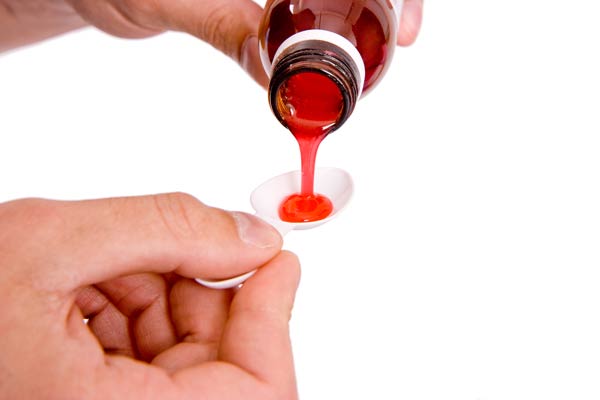Dextromethorphan, more commonly known as DXM, is an over-the-counter cough medication that is commonly abused by teenagers and young adults because of its accessibility and affordability. DXM is a dissociative anesthetic when it is taken in extremely high doses, meaning that it has the potential to produce psychedelic effects. When taken exactly as suggested, it effectively suppresses mild to moderate coughs while creating some level of sedation that helps individuals who are sick with the common cold get an increased amount of rest. Initially, this over-the-counter medication was developed as a replacement for the opioid narcotic cough medication codeine – however, now this drug itself is being abused almost to the same degree.
Dextromethorphan and Opioid Addiction
The recommended dose of DXM is between 10 and 20 mg every 4 to 6 hours, or 30 mg every 6 to 8 hours. individuals who abuse this medication will frequently take between 240 and 1500 mg – anywhere over 240 mg can result in psychoactive effects like euphoria, mild stimulation, distorted visual perceptions, loss of motor control, dissociative sedation, and hallucinations. Interestingly enough, DXM has recently been used for the treatment of symptoms associated with opioid withdrawal. There has been some evidence pointing towards the fact that this over-the-counter cough suppressant can help minimize the severity of opioid withdrawal symptoms, while sometimes decreasing the overall duration of detoxification. However, DMX is itself abused for mood-and-mind altering effects, making it an unlikely and unsafe clinical choice for opioid withdrawal management. 
DXM and Opioid Withdrawal
One clinical trial conducted in 2013 found that dextromethorphan had the potential to relieve symptoms associated with opioid withdrawal. In the clinical trial, dextromethorphan was combined with clonidine, and patients who received this combination of medications experienced milder withdrawal symptoms compared to those who were administered clonidine alone. Additionally, the severity of the symptoms began to diminish as early as the second day of the detoxification process.
Studies on Dextromethorphan and Opioid Detox
Another study conducted by the American Journal on Addictions and the American Academy of Psychiatrists in Alcoholism and Addictions found that a combination of dextromethorphan and quinidine was highly effective in treating the more severe symptoms associated with heroin detoxification. As it stands, several medication-assisted treatment methods are most commonly used for the reduction of opioid withdrawal symptoms. The medications that are most commonly used include methadone and buprenorphine as well as lorazepam and diazepam. While these medications are effective in treating more severe physical symptoms and reducing the intense psychological drug cravings that tend to go hand-in-hand with opioid withdrawal, they do all have some limitations, including a wide range of adverse side effects, significant rates of relapse, the liability for abuse and incomplete alleviation of withdrawal symptoms. When DXM is taken and controlled amounts, it effectively alleviates symptoms and does not cause serious adverse side effects – more importantly, it is less addictive than other medications and has a lower potential for abuse overall.
Evoke Wellness and Medication-Assisted Treatment
At Evoke Wellness we believe in the clinical merits of Medication Assisted Treatment. However, we carefully develop every treatment plan based on the unique needs and requirements of each client. If a client comes to us with a mild case of opioid abuse, we might prescribe a combination of non-narcotic, over-the-counter pain relievers and dextromethorphan to be taken short-term, until physical and psychological symptoms subside. We recommend and believe in Medication-Assisted Treatment that includes buprenorphine to alleviate the psychological drug cravings that very frequently lead to relapse. Upon admission to an Evoke Wellness facility, each client undergoes an in-depth clinical and medical assessment, which helps our treatment team determine which medications will be the most effective for each case. For more information, give our Treatment Advisors a call at any point in time.


